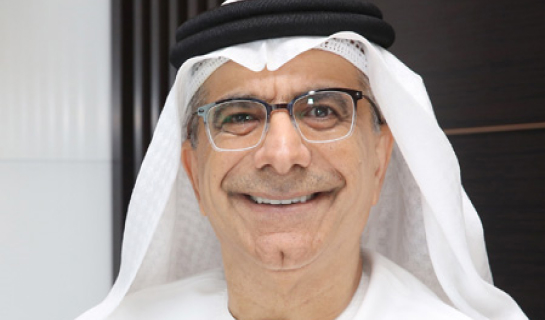
First Abu Dhabi Bank (FAB), the UAE’s largest bank and one of the world’s largest and safest financial institutions, reported its financial results today for the first half ended 30 June 2019.
Delivering a solid financial performance in the first half of 2019
- Record half year net profit of AED 6.3 Billion, up 4% year-on-year, driven by revenue growth, coupled with continued cost control and prudent risk management
- Second quarter net profit of AED 3.2 Billion, up 4% sequentially and 5% year-on-year
- Annualised Earnings per Share (EPS) at AED1.12, compared to AED 1.08 in the first half of 2018
- Half year Group Revenue up 3% year-on-year, crosses the AED 10 Billion mark
- Operating costs broadly flat year-on-year despite increased investments in digital and strategic initiatives; cost-to-income ratio (ex-integration costs) of 26.1% remains at industry-leading level
- Healthy asset quality with Non-Performing Loan ratio at 3.1% and provision coverage of 111%
Business momentum continues, underpinned by a strong liquidity position, robust capitalisation
- Loans and advances at AED 366 Billion, up 6% year-on-year
- Customer deposits at AED 462 Billion, up 7% year-on-year
- Strong liquidity position with June-end 2019 Liquidity Coverage Ratio (LCR) at 137%, and over AED 12 Billion of term funding raised in the first half of 2019 at a competitive pricing
- Strong capital generation with Basel III Common Equity Tier-1 (CET1) ratio of 13.6%
Commenting on the bank’s performance, Abdulhamid Saeed, Group Chief Executive Officer of FAB, said: “Our financial results for the third quarter of the year reflect a solid performance characterised by the effective execution of our strategy to drive growth and transformation as we remain firmly on track to unlock our full potential.
Group Net Profit for the first nine months of 2019 grew 4% to AED 9.4 Billion, driven by positive momentum in our Corporate and Personal Banking businesses, as we continue to leverage on our competitive strengths across our global network. Our performance is met with consistent cost and risk discipline, whilst we continue to put our customers first and invest in technology and digital infrastructure to enhance FAB’s overall banking proposition.
Reflecting FAB’s leading role in supporting economic and social development plans in Abu Dhabi and across the UAE, we continued to support the Emirate’s Ghadan 2021 stimulus package by contributing to various programmes.
Internationally, we are on track to implement our strategy in targeted markets, including Saudi Arabia, where we are serving a growing client base and will open a second branch in the city of Khobar shortly.
We are entering the last quarter of 2019 with a robust balance sheet, strong capital and liquidity ratios, stable asset quality, and improved returns. Further emphasising the bank’s strong financial position, we were pleased to see FAB being recognised once again this year as the safest bank in the Middle East, 4th safest in Emerging Markets and 22nd safest amongst commercial banks globally by Global Finance magazine. Despite a more challenging global and regional outlook, we remain on a solid track to achieve a record performance in 2019, and maximise shareholder returns”.
Foreign Ownership Limit
In light of the ever-changing global economic landscape, and the benefits of foreign capital flows to support prosperous economies, such as the United Arab Emirates, FAB’s Board of Directors discussed the bank’s Foreign Ownership Limit in their meeting today.
As part of efforts to support the UAE in attracting capital, foreign investments and in promoting economic growth, the board has proposed to remove FAB’s foreign ownership limit cap, with the potential that other public companies in the UAE may apply similar measures. This will support the country’s leadership in positioning the UAE amongst one of the most attractive economies for foreign direct investments.
The changes proposed would be subject to the supervision of regulatory authorities and would require amendments to the current laws and policies.
